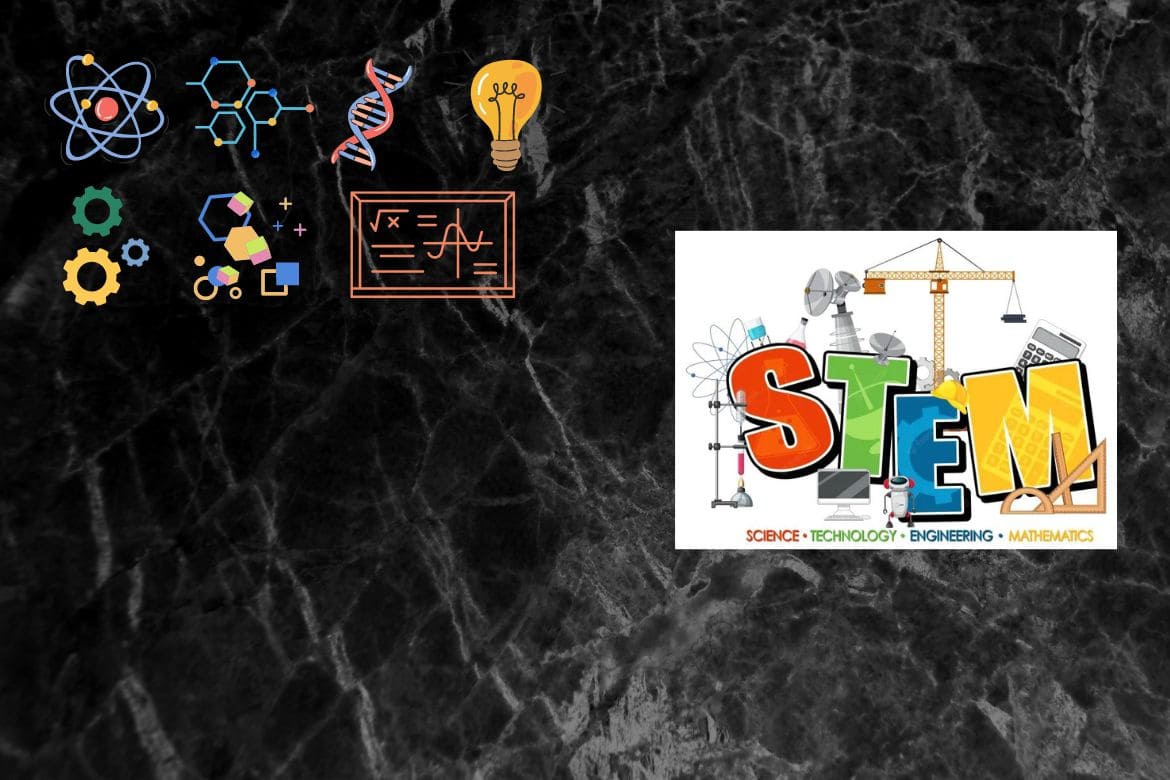Table of Contents
To have a critical look at the Ghana STEM Education Initiative, I think is in order. Ghana is a country with a lot of potential. Its people are hardworking and its natural resources are vast.
However, the country faces many challenges, just like any other country, one of which is the lack of many STEM educational initiatives, albeit, in the present educational dispensation, STEM Education is being taken seriously.
Note that in Africa she’s (Ghana) doing better comparatively.
In this article, I will be making a case as to why there’s a need for more STEM (science, technology, engineering, and mathematics) education in Ghana to help solve some of the country’s most pressing problems now and in the future, and how we all can help make it a success.
Why does Ghana need more STEM education initiatives?
Traditionally, Ghana’s economy is mostly based on agriculture, with cocoa being the main export crop. However, Ghana also has significant reserves of oil and gas.
This means that for her to derive value from what she produces, she needs STEM graduates.
Despite these natural resources, Ghana remains one of the poorest countries in the world, with a GDP per capita of just 2,445.29 USD (2021) which is derived from a gross domestic product of 77.59 billion USD
One of the main reasons for this is the country’s lack of investment in science, technology, engineering and mathematics.
Currently, just 1% of Ghana’s GDP is spent on research and development, compared to 2.8% in South Africa and 3.6% in China. This low level of investment means that Ghanaian scientists and engineers are not able to keep up with global advancements in these fields.
As a result, the country struggles to develop new technologies and products that can improve the lives of its citizens.
Investing in STEM would be a step in the right direction for Ghana. By increasing spending on research and development, training more scientists and engineers, and giving them better education in the STEM discipline, Ghana can begin to close the gap between itself and other countries.
This will lead to more jobs and increased economic growth, helping to reduce poverty levels and improve the standard of living for all Ghanaians.
There are many reasons why Ghana needs more education in STEM:
- First, it will help prepare students for the workforce of the future. In an increasingly global and competitive economy, STEM skills are in high demand.
- STEM initiatives will help ensure that Ghanaian students have the critical thinking and problem-solving skills they need to succeed in the 21st century.
With a stronger background in science, technology, engineering, and mathematics, Ghanaian students will be able to compete for jobs both locally and internationally.
The current state of STEM education initiatives in Ghana
Ghana currently has a very low rate of students enrolling in tertiary STEM education programs and an equally low number of students completing those programs.
This is primarily due to a lack of quality secondary education in STEM subjects, which leads to few students being prepared for tertiary STEM programs.
Additionally, there are very few secondary STEM programs available in Ghana, meaning that even students who are interested in pursuing STEM careers have limited opportunities to do so.
As a result, Ghana has a very low number of qualified STEM professionals, which negatively impacts the country’s ability to develop economically and compete globally.
There have been some recent initiatives to try to improve the state of STEM teaching in Ghana, but much more needs to be done in order to significantly raise the number of qualified STEM professionals in the country.
Increasing funding for secondary and tertiary education programs, as well as increasing the availability of quality teaching resources, would be a good first step.
Again, greater efforts need to be made to encourage students, especially women and other groups traditionally under-represented in STEM fields, to pursue careers in STEM.
Only by taking these sorts of measures will Ghana be able to develop the strong pool of talent necessary to compete on the global stage.
Ghanaian students who are enrolled in STEM programs often do not have access to the same quality of education as their counterparts in developed countries.
This is due to a lack of resources and experienced teachers. As a result, many Ghanaian students are not able to develop the necessary skills to compete in the global economy.
There is a need for more STEM initiatives in Ghana so that more students can benefit from the high-quality education they deserve. These initiatives will help improve the quality of life for all Ghanaians and ensure that Ghana remains competitive in the global economy.
Overview of STEM Colleges in Ghana
In order to promote STEM education among students, the Education Ministry has pledged to build new schools. This is to close the gap that has existed since the introduction of junior and senior high schools in the educational reforms of 1987.
To strengthen the science-to-humanities ratio, the government has already announced the opening of six new STEM schools this year.
The schools are:
- TVET School in East Legon
- Abomosu STEM School
- Kpasenkpe STEM School
- Bosomtwe Girls STEM School, and
- STEM Centre at Accra Senior High School.
The government has started building 20 STEM centres and 10 model STEM Senior High Schools across the nation, which are all in various stages of construction, according to Education Minister Yaw Adutwum.
The benefits of STEM education initiatives
There are many reasons why Ghana needs more STEM education initiatives. Some of the benefits include:
- It will help prepare students for the workforce of the future. In an increasingly global and competitive economy, these skills are in high demand. Such initiatives will help ensure that Ghanaian students have the critical thinking and problem-solving skills they need to succeed in the 21st century.
- Also, it promotes gender equality and empowerment. In Ghana, women are under-represented in these fields. By increasing access to, and training for girls and young women, Ghana can help close the gender gap in their society.
- It sure can help boost Ghana’s economy, since these subjects are crucial to innovation and economic growth. Investing in such initiatives, can create new jobs and industries in Ghana, and help the country prosper.
- Fourth, work in STEM fields. This means that instead of hiring expatriates for STEM-based jobs, which can be expensive and difficult to sustain in the long term, Ghana would have a pool of well-trained professionals to fill in those gaps.
- It leads to increased economic growth: STEM initiatives can help to increase economic growth by providing people with the skills they need to get jobs in fast-growing industries.
- Improved standards of living: STEM initiatives can also help to improve standards of living by providing people with the skills they need to get better jobs, or start their own, and earn more money.
- Reduced poverty: STEM initiatives can help to reduce poverty by providing people with the skills they need to get jobs and earn more money.
- Improved education: STEM initiatives can also help to improve education by providing students with the skills they need to be successful in school and in their careers.
- Finally, it’s essential for tackling global challenges like climate change and health care. If we want to find solutions to these pressing problems, we need more people with STEM skills working on them. That’s why it’s so important that Ghana, and by extension Africa, invests in STEM education initiatives.
Ghana needs more STEM initiatives in order to reap these benefits and create a better future for its people.
The potential impact of STEM initiatives
Without STEM initiatives, Ghana will continue to lag behind other countries in the science and technology sectors. This will impact the country’s economy as well as its ability to compete on the global stage.
STEM initiatives are needed in order to give Ghanaian students the opportunity to thrive in an increasingly technological and scientific world.
Ghana has the potential to make great strides in terms of economic development through initiatives that promote STEM education and careers.
Why Does Ghana Need More STEM Initiatives?
In a country where nearly 60% of the population is under the age of 25, there is a large pool of young people who could be trained and employed in STEM-related fields. Currently, only about 3% of Ghanaians are employed in these fields.
There is therefore a strong need for initiatives that will encourage more young people to pursue careers in STEM. These initiatives could have a significant impact on Ghana’s economy, as they would lead to an increase in the number of people employed in high-skilled jobs.
Moreover, they would also help to increase the country’s competitiveness in global markets.









The need for more STEM initiatives
Ghana is a country with great potential for economic growth. However, in order to achieve this growth, the country needs to invest more in STEM education initiatives.
- Ghana has a lot of natural resources that could be exploited for economic gain. However, in order to do this, the country needs to develop its infrastructure and human capital. One way to do this is by investing in STEM initiatives.
- Ghana has a large population of young people. This is an asset that can be harnessed for economic growth. However, in order for young people to be able to take advantage of opportunities in the STEM field, they need to be properly educated and trained.
- Currently, Ghana does not have enough schools teaching STEM subjects nor enough qualified teachers to teach these subjects. This needs to change if Ghana wants to develop its human capital and achieve economic growth.
- Investing in STEM initiatives will not only help Ghana achieve economic growth, but it will also help the country develop its human capital and address issues such as poverty and inequality.
The role of stakeholders
By stakeholders, I’m referring to the government, NGOs, the private sector, the international community, and the public sector.
a/ The role of government in STEM initiatives
The role of government in STEM initiatives is to provide the necessary infrastructure and resources to ensure that these programs are successful.
In Ghana, this includes ensuring that there are adequate facilities and equipment for STEM education, as well as providing funding for teacher training and professional development. The government also needs to create awareness of the importance of STEM education among the general public.
Ghana is a rapidly growing economy with a large youth population. In order to continue this growth, it is essential that Ghana invest in STEM initiatives.
The government of Ghana has shown a commitment to STEM education, but more needs to be done in terms of funding and supporting STEM initiatives.
Ghanaian students have shown great potential in STEM subjects, but they often lack the resources and opportunities to pursue careers in these fields. By investing in STEM initiatives, the government of Ghana can provide more opportunities for young Ghanaians to develop their talents and contribute to the country’s economic growth.
b/ The role of NGOs in STEM initiatives
There is a growing recognition that Ghana needs more STEM initiatives in order to compete in the global economy. However, these initiatives cannot be successful without the support of NGOs.
NGOs play a critical role in STEM initiatives by providing financial and technical assistance. They also help to create awareness about the importance of STEM education and its potential benefits for Ghanaian students.
In addition, NGOs can help to connect STEM initiatives with other educational programs and activities. This is important because STEM initiatives need to be integrated into the existing education system in order to be successful.
c/ The role of the private sector in STEM initiatives
The private sector plays a critical role in the development of any country, and this is especially true when it comes to STEM initiatives. In Ghana, the private sector has been a key partner in the development of STEM education and training programs. However, there is still a need for more private-sector involvement in order to ensure the continued success of these initiatives.
The private sector can provide much-needed resources and expertise to help Ghanaian students succeed in STEM fields. In addition, the private sector can help create jobs for graduates of STEM programs, which is essential for the long-term success of these initiatives.
Ghana needs more STEM initiatives in order to stay competitive in the global economy. The private sector can play a vital role in making these initiatives successful.
The role of the private sector in supporting STEM initiatives
Technology is rapidly changing the world we live in and private sector organizations are playing an increasingly important role in supporting STEM initiatives that provide Ghanaian students with the skills they need to succeed in a global economy.
The private sector has a vested interest in developing a workforce that is equipped with the latest skills and knowledge, and STEM initiatives offer an excellent way to achieve this.
By supporting STEM initiatives, businesses can help to ensure that Ghanaian students are able to compete for jobs on a global scale and contribute to the country’s economic development.
There are a number of ways in which businesses can support STEM initiatives, including:
- Providing financial support for initiatives that aim to increase access to quality STEM education;
- Investing in research and development projects that focus on innovative new teaching methods and educational resources;
- Collaborating with other businesses and organizations to promote STEM initiatives; and
- Encouraging employees to get involved in mentoring or tutoring programs that support Ghanaian students.
Businesses that invest in Ghana’s future by supporting STEM initiatives will not only be helping to develop a skilled workforce but will also be contributing to the country’s overall economic growth.
There are also a number of private sector initiatives that are supporting STEM initiatives in Ghana. One example is Code {Ghana}, which is an organization that provides coding training to young people in Ghanaian schools. Code {Ghana} also offers scholarships to help financially disadvantaged students access coding courses.
Another private sector initiative is the Girls Coding Club Ghana, which offers coding classes specifically for girls aged 10-18 years old.
The role of religious organisations in STEM
Over the years, Ghana’s education system, from the basic level through to secondary has seen help from religious organisations. I wouldn’t want to mention names, but it’s worthy of note that there should be a collaboration between these organisations in the STEM implementation direction.
The sort of collaboration I envisage is one that would give them the energy and the push to not just open new schools but see to it that the required teaching aids, laboratories, trained staff and right environment are provided.
The role of the international community in STEM initiatives
The international community has a critical role to play in the development of STEM initiatives in Ghana. While the Ghanaian government has shown commitment to investing in STEM education and infrastructure, more needs to be done to ensure that these initiatives are successful.
- The first step is to provide financial support for STEM initiatives. This can be in the form of direct investment or through international organizations such as the World Bank.
- The second step is to provide technical assistance. This includes helping to develop a curriculum, training teachers, and providing access to resources and expertise.
- The third step is to promote collaboration between Ghanaian and international organizations.
This will help ensure that Ghanaian STEM initiatives are aligned with global best practices.
- Finally, the international community should monitor and evaluate Ghanaian STEM initiatives to ensure they are having positive impacts.
The challenges of implementing STEM initiatives
While it is generally agreed that there is a need for more STEM initiatives in Ghana, the country faces a number of challenges when it comes to implementing such programs.
- One of the biggest challenges is finding the funding to support these initiatives. Many of the existing STEM programs in Ghana are supported by donor funding, and there is always the risk that this funding will be pulled in the event of political or economic instability.
- Another challenge is that Ghana does not have a large pool of qualified STEM educators to draw from. This shortage is exacerbated by the fact that many qualified STEM teachers are working in other countries – a product of the so-called brain drain. This means that Ghanaian students often have to be taught by teachers who are not specialised in their field, which can lead to a lower quality of education.
- Finally, another challenge facing Ghanaian STEM initiatives is cultural attitudes towards science and technology. In many parts of Ghana, science and technology are still seen as being synonymous with Westernization, and this can make it difficult to get people on board with new initiatives.
The way forward for STEM initiatives in Ghana
Ghana has been working hard to improve its STEM education in recent years, but there is still a long way to go. The country faces many challenges, including a lack of resources and qualified teachers. However, there are a number of initiatives that are working to address these issues.
One such initiative is the Ghana STEM Alliance, which was launched in 2016. The aim of the alliance is to improve coordination and support for STEM initiatives in Ghana. The alliance is made up of representatives from government, academia, industry, and civil society organizations.
The Ghana STEM Alliance has so far supported a number of initiatives, including the setting up of a national database of STEM resources, the development of curricula for different educational levels, and the training of teachers. The alliance has also organized a number of workshops and conferences to raise awareness about STEM education.
- DreamOval Foundation: A Force behind STEM Education in Ghana
- The Siemens Stiftung Media Portal
- Elevate Network in Ghana Encourages STEM Education
- Tullow Ghana contributes to revolutionizing STEM education in Ghana
The potential impact of STEM initiatives on Ghana
The potential impact is enormous, but I will touch on only 3:
1/ Resulting Skills from STEM Education
Since STEM-based education teaches kids more than just science, technology, engineering and mathematics, the emphasis on practical application-based learning will foster the development of a range of skill sets, including creativity and 21st-century competencies that would inure to the benefit of the person and country.
Adaptability, social skills competencies, media and technology literacy, productivity, communication, and cultural awareness are examples of 21st-century abilities.
These coupled with problem-solving abilities, genuine creativity, critical thinking and common sense, curiosity, decision-making, leadership, entrepreneurship, acceptance of failure, and other abilities can be learned through STEM education.
These skill sets go a great way toward training these kids to be innovative, regardless of the future professional route they may be thinking about.
2/ How Important Innovation Is
Innovation is based on the capacity to critically analyze situations and question norms. Innovation is a crucial part of economic growth.
It is birthed out of systematic training that challenges the status quo, and that is what Ghana needs.
The people with the power to transform the world are innovative minds, hence the need for more innovators to be derived from the Ghana STEM education initiative.
3/ How to Make Future Generations Innovation Ready
STEM education programs are the first step in preparing today’s youngsters to become tomorrow’s innovators and inventors.
With STEM education, one is offered the chance to refocus traditional education on the practical application and hands-on learning that are essential for fostering a creative mindset.
The Bottomline
Currently, many Ghanaian students do not have access to quality STEM education, which means that they are not well-prepared for the future.
This is a major problem, as STEM initiatives can provide Ghanaian students with the skills and knowledge they need to succeed in the global economy.
There are many ways to improve STEM education in Ghana.
- One way is to increase government funding for STEM initiatives.
- Another way is to improve the quality of teaching in STEM subject areas.
- Finally, it is also important to increase access to STEM education, so that more Ghanaian students will have the opportunity to learn about these important disciplines.
The good news is that Ghana has been working hard to improve its STEM education in recent years, but there is still a long way to go.
Although the country faces many challenges, including a lack of resources and qualified teachers. However, there are a number of initiatives that are working to address these issues.
The Ghanaian government has also been working on its own initiatives to improve STEM education in the country. In 2017, the government launched the National STEM Policy, which sets out a number of goals for improving STEM education in Ghana.
These include increasing access to quality STEM education, promoting equity in STEM education, and developing a strong workforce in STEM-related fields.
By taking these steps, Ghana will be able to produce more professional skilled workers who can compete in the national and global economy. This will benefit not only individual Ghanaians but also the country as a whole, and spill over to Africa, the Motherland.
I am optimistic, and so should you. What are your thoughts? Please let me hear from you via the comments section.


